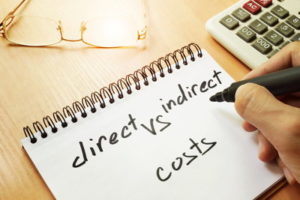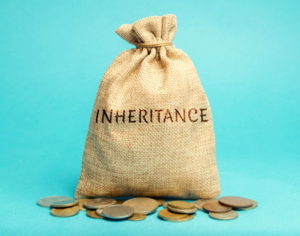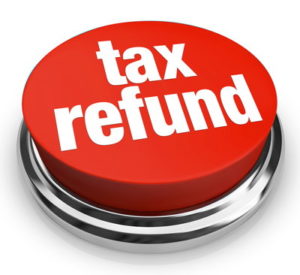 Whether you’re a seasoned bettor or only place a couple of wagers every now and then, it’s entirely possible that you’re not completely au fait with the tax system in the United Kingdom when it comes to gambling. You might have won a big bet recently and been wondering if you need to contact Her Majesty’s Revenue and Customs, but the answer to that is ‘no’.
Whether you’re a seasoned bettor or only place a couple of wagers every now and then, it’s entirely possible that you’re not completely au fait with the tax system in the United Kingdom when it comes to gambling. You might have won a big bet recently and been wondering if you need to contact Her Majesty’s Revenue and Customs, but the answer to that is ‘no’.
It isn’t true to say that tax doesn’t need to be paid on gambling money, it’s just that the responsibility for paying it doesn’t lie with the bettor. Instead, companies that offer betting services in the UK pay what is called Point Of Consumption tax in the form of the Remote Gaming Duty. That isn’t the case if you bet outside of the UK, however.
Point Of Consumption Tax
 In 2014 the UK government introduced a Point Of Consumption Tax called the Remote Gaming Duty. This came into being on the 1st of December 2014 and was set at 15%. It was an amount that had to be paid by every company that had UK-facing operations, regardless of where they were physically based; important with so many located in the likes of Malta and Gibraltar.
In 2014 the UK government introduced a Point Of Consumption Tax called the Remote Gaming Duty. This came into being on the 1st of December 2014 and was set at 15%. It was an amount that had to be paid by every company that had UK-facing operations, regardless of where they were physically based; important with so many located in the likes of Malta and Gibraltar.
The PoC tax covers any gambling operation that is online, whether it be played on a mobile phone, tablet or computer. It is for all gambling that takes place in the United Kingdom and originally said that any company aiming its wares at a UK audience would need to pay 15% tax on its gross profit. That tax amount changed in 2019, however.
In the 2018 budget it was announced that the PoC would be increasing from 15% to 21%. The idea behind this increase was to cover the money that they government was going to lose after introducing a £2 maximum stake on Fixed Odds Betting Machines. Even before the increase the RGD was responsible for about £529 million in tax.
Punters Aren’t Affected, Are They?

In simple terms, then, punters don’t need to worry about paying tax on winnings from normal bets that are placed in the United Kingdom. Strictly speaking, the tax doesn’t affect the bettor and is only a problem for the betting
companies. However, the world of betting is rarely that simple and there is something that people who bet will need to bear in mind.
Bookmakers are businesses that make money. Whatever happens, the House always wins. With that in mind, you don’t have to pay tax on your winnings from most forms of bets, but that doesn’t mean that you’re not paying the tax. Bookmakers and online casinos will adjust their odds and the Return To Player percentage to mean that their losses are always covered.
That means that you might not actually have to pay tax, but the money for the tax is being taken from you in other ways by the companies that you use for your betting needs. It’s why we’ll always recommend that you shop around for the best odds and join a few betting sites, so you can do your best to make sure that you win as much as you can when your bets come in.
Some Forms Of Gambling Will Be Liable For Tax
 The above is all true for people that just place straight bets with the bookmaker, play normal games in casinos and buy lottery tickets. If you win in any of those circumstances then there will be no tax owed by you. When that changes is if you opt for a form of gambling that is a little bit away from the norm, with spread betting being the perfect example.
The above is all true for people that just place straight bets with the bookmaker, play normal games in casinos and buy lottery tickets. If you win in any of those circumstances then there will be no tax owed by you. When that changes is if you opt for a form of gambling that is a little bit away from the norm, with spread betting being the perfect example.
Even that isn’t without its complications, however. Spread betting is technically exempt from Capital Gains Tax and Stamp Duty, which makes it different from regular shares dealing. It is only exempt, though, if it is not your main source of income. If you have an income that is enough to live off, known as a subsistence income, then additional income from spread betting isn’t taxable.
If, on the other hand, spread betting is your main income source then you’ll find yourself in a situation where you will indeed need to pay tax on it. That isn’t set in stone, though, and it’s always worth speaking to a financial adviser or accountant to help you figure out what you personal tax situation is to make sure you’re doing things correctly.
Tax May Be Due Further Down The Line
 Whilst the winnings themselves won’t be immediately liable for tax, there may be some that you should be aware of. A bigger win, for example, might well be subject to income tax, which stands at 18%. There is also the possibility that winnings will be subject to the requirements of inheritance tax when you die, if you leave it to someone.
Whilst the winnings themselves won’t be immediately liable for tax, there may be some that you should be aware of. A bigger win, for example, might well be subject to income tax, which stands at 18%. There is also the possibility that winnings will be subject to the requirements of inheritance tax when you die, if you leave it to someone.
The threshold for inheritance tax is £325,000, with everything over that amount liable to pay as much as 40% in tax. You can gift up £3,000 a year tax-free, but tax will then be owed on that amount if you die within seven years of giving the gift. Again, turning to an expert will help you navigate this world if you find yourself in it.
Tax In Other Countries
 All of the above is relevant to the United Kingdom, but things are very different if you’re gambling elsewhere. Most other countries charge the bettor anywhere between 1% and 25% tax on winnings. The key thing, though, is that the United Kingdom has a number of treaties with many different foreign nations to mean that tax may not payable by you.
All of the above is relevant to the United Kingdom, but things are very different if you’re gambling elsewhere. Most other countries charge the bettor anywhere between 1% and 25% tax on winnings. The key thing, though, is that the United Kingdom has a number of treaties with many different foreign nations to mean that tax may not payable by you.
If you were to win big in Las Vegas, as an example, then a Federal Withholding Tax will almost certainly be applied to your winnings. That doesn’t mean that the money is lost forever, though, as you can apply to get this money refunded to you as you’re not an American citizen. Similar situations exist in other countries too.
The old saying goes that ‘tax doesn’t have to be taxing’, but everyone knows that it very much is. The headline here, however, is that very little, if any, tax will be taken from gambling winnings if you’re a resident in the United Kingdom, regardless of where you win it.
